NAWAMED: towards a holistic approach on water management - notes from the 4th Mediterranean Water Forum
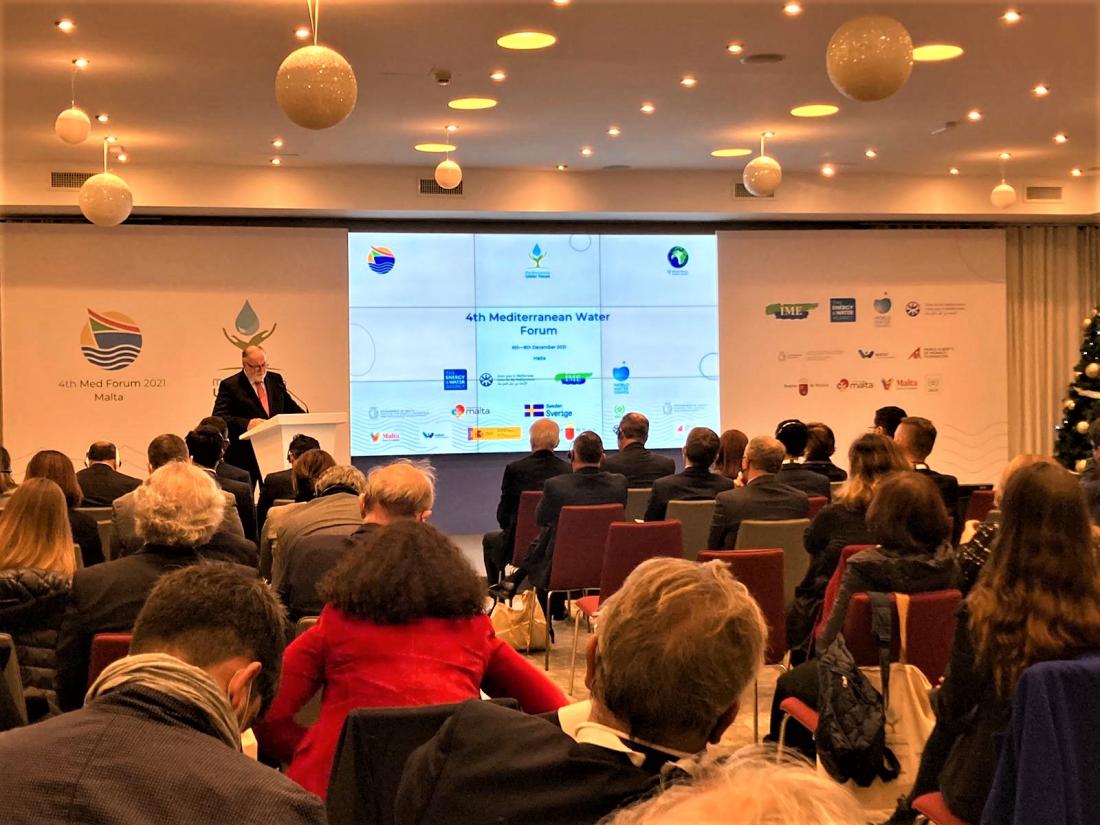
The 4th Mediterranean Water Forum took place in Malta from 6th to 8th December.
Originally launched in Marrakesh (Morocco) in 2011 and held subsequently in Murcia (Spain) in 2014 and Cairo (Egypt) in 2018, the Mediterranean Water Forum has been put forth as a regional event that brings together the main stakeholders in the Mediterranean Water Community.
The Forum has been organized by Water&Energy Agency of Malta, Institut Méditerranéen de l’Eau and Union for the Mediterranean.
The Forum aimed to “present the Mediterranean as a hub of innovative water management responses which have been locally developed or adapted to address the prevailing challenges of the region including those related to climate change impacts”. It also outlined how the Mediterranean region is developing an integrated implementation framework through the Union for the Mediterranean’s Water Agenda, which should ensure that different water management actions reinforced each other thereby providing a comprehensive response for evolving needs. In doing so, the forum has also showcased “the replication potential of these responses to address emerging problems at a global scale, including as a contributor to jobs, prosperity, stability and peace”.
Representatives from the NAWAMED project attended the forum to contribute their experiences and establish new relationships with potential international partners. The MEDWAYCAP project -which aims to supporting innovative solutions and technologies to increase efficiency starting from the reuse of treated wastewater- was there too with The EuroMediterranean Center for the Sustainable Development – SVI.MED. already partner of NAWAMED, which have the strategic role to disseminate the MEDWAYCAP project and its themes.
The forum was organized in 5 Sessions: “The Mediterranean as a hub of water management solutions and responses: Towards optimized management of water and sanitation services”, “Non-Conventional Water Resources and associated renewable energies”, “Integrated Management of Water Resources”, “New Approach for the Water investment and financing nexus, with climate funding, in a new world”, “International Collaboration”.
In his speech, Mr. Loic Fauchon, President of the World Water Council, remarked that “water is an invaluable resource. It is essential to all life, all ecosystems and all human activity”. He underlined also that “yet, water is still not appreciated as it should. That is why, since its creation, the World Water Council has been working to make water a global political priority, mainly through the organization of the World Water Forums”. In fact, “The time has come to transform our speeches into tangible and concrete solutions. It is also time to approach water in a cross-cutting manner. Water must be inseparable from energy, food, education and health”. The 9th World Water Forum will take place in March 2022 and for the first time in sub-Saharan Africa in Dakar, Senegal. That is why, mr. Fauchon explained, “the contribution of the Mediterranean will be crucial for the 9th Forum of Dakar in view of the similar challenges encountered. We all have a responsibility towards water. Let us never lose sight of the reasons for our commitment, and above all for who we are fighting for. Several billion people are concerned worldwide”.
“It is very important to us to follow a holistic approach in term of water management” said mr. Almotaz Abadi, managing director at the Union for Mediterranean, an intergovernmental institution bringing together the European Union Member States and 15 countries from the Southern and Eastern shores of the Mediterranean “to promote dialogue and cooperation”. “The issue is the deficit between resources availability and the demand and the solutions aren’t simple. It’s a multistakeholder issue. We have to convince governments to invest in the water sector”.
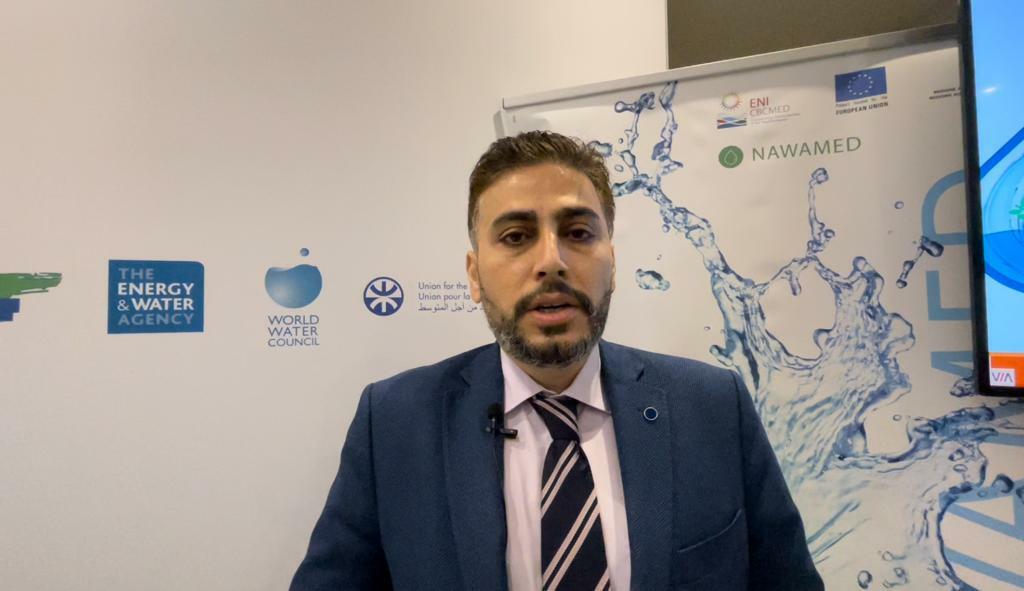
Mr. Alain Meyssonnier, President of the Institut Méditerranéen de l’Eau (IME), told to NAWAMED representatives that “working on non-conventional waters is very important because many countries in the Mediterranean area do not have enough water, and they are in stress for this. They need to develop those systems of reuse. We need to invest in non-conventional waters even in Europe, due to climate change consequences. We have to think about reducing costs and increase efficiency”.
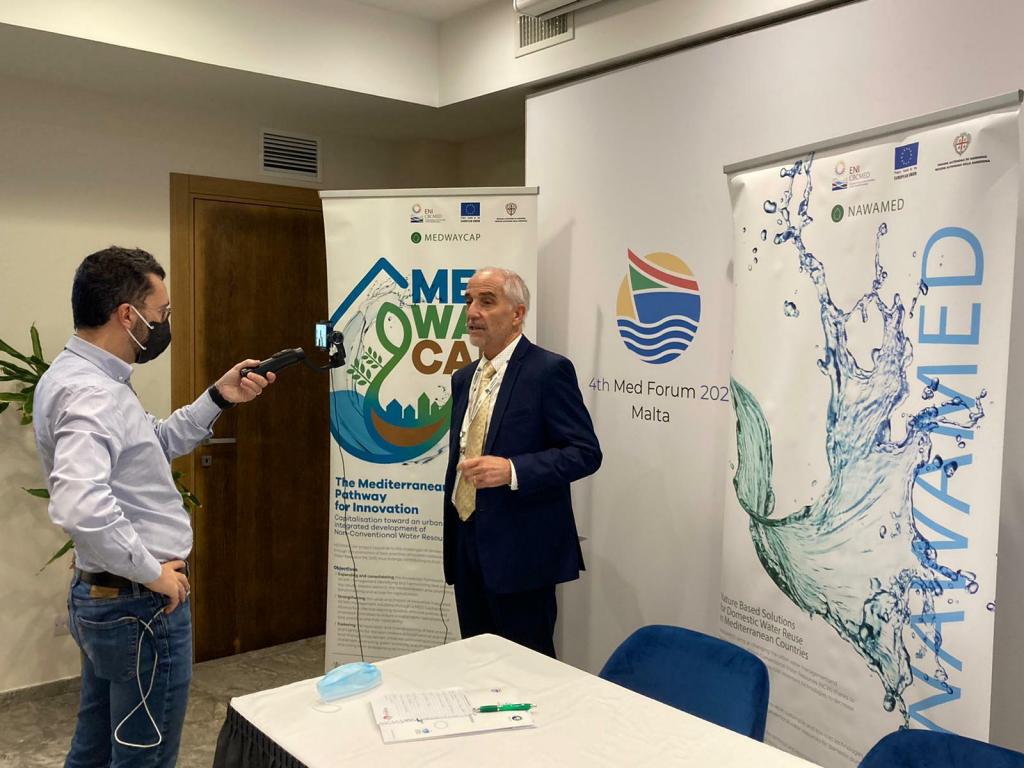
“First of all, there’s a cultural issue” said Mr. Manuel Sapiano, CEO of the Energy and Water Agency (EWA) of Malta. “There’s a social element which need to be addressed. But there’s also a financial element: we need to promote these solutions through i.e. subsidies or preferential pricing. We need sustainable solutions which are sustainable. I define it a ‘sustainable sustainability’”.
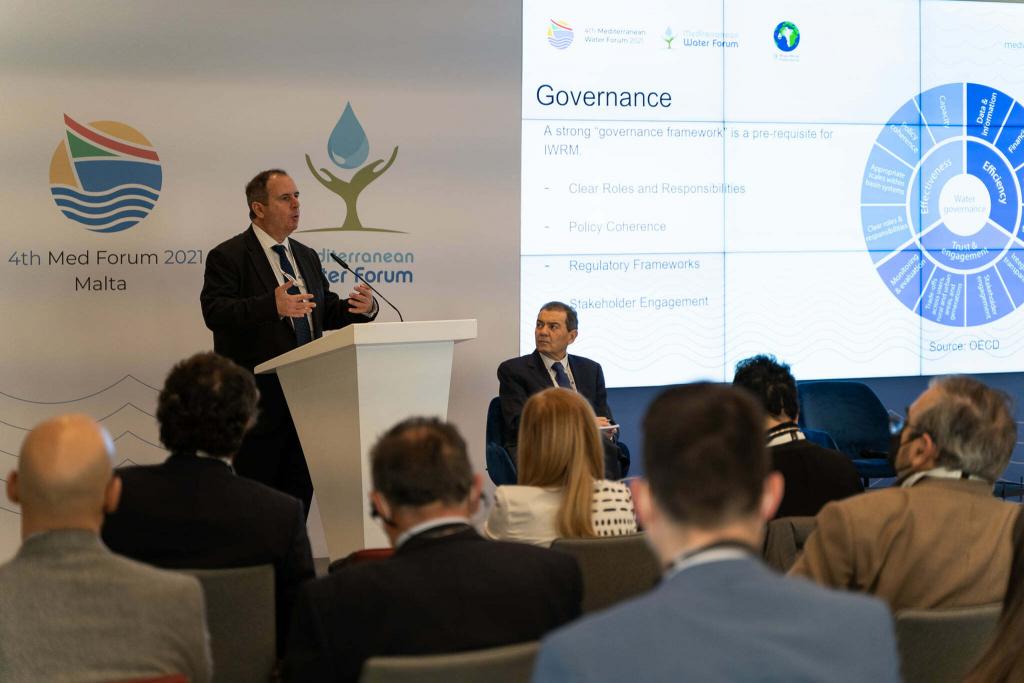
Mr. Eric Mino, from Euro-Mediterranean Information System on know-how in the Water sector (EMWIS) suggested that “we need to use any drop. The main challenges for non-conventional water reuse are treatment, regulatory framework -very different from country to country-, awareness from a consumer point of view. At a technical level we have all the solutions. The most effective leverage to improve non-conventional water reuse is a governance leverage”.
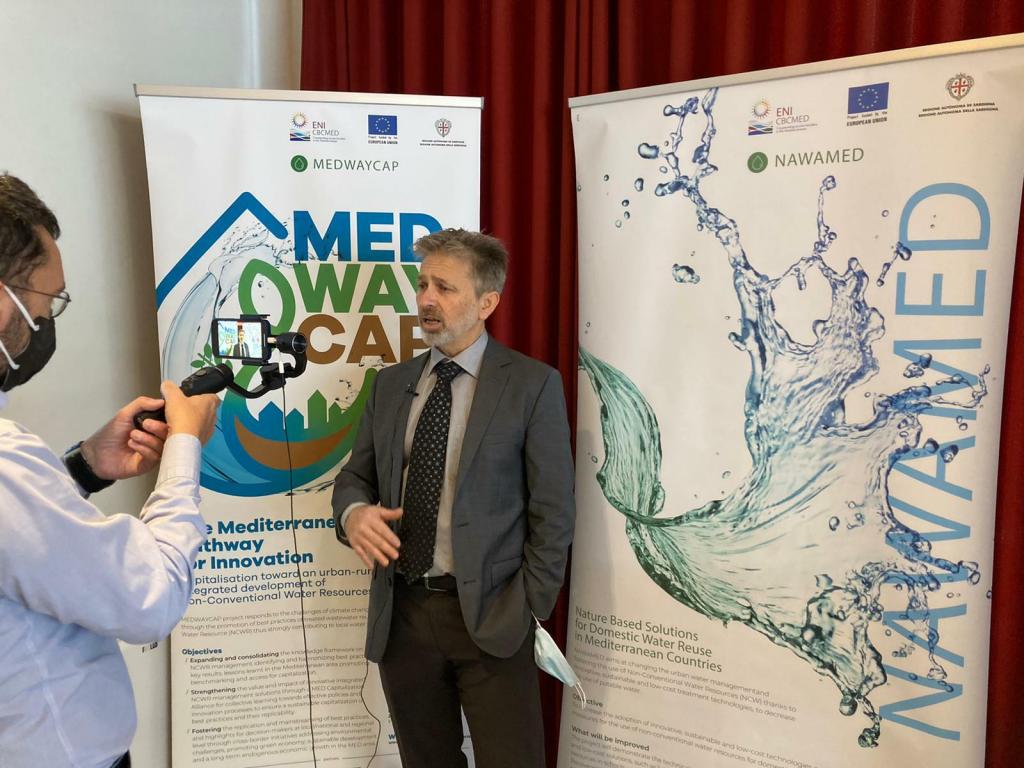
This great experience allowed the NAWAMED and MEDWAYCAP projects to better understand the pathway for to strengthening the value and impact of innovative integrated Non-Conventional Water Resources management solutions through a Mediterranean Alliance for a collective learning towards effective policies and innovation processes.







